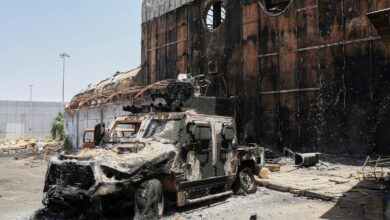Israeli Prime Minister Sanctions Operation in Rafah

In a significant development, the Prime Minister of Israel has given the green light for a strategic operation plan in Rafah, marking a pivotal moment in the region’s ongoing security and diplomatic efforts. This approval follows extensive discussions within the highest echelons of the Israeli government and military, reflecting the complex nature of the situation.
Rafah, a key location on the border between Egypt and the Gaza Strip, has long been a focal point of security concerns due to its strategic importance and the challenges it poses. The operation, detailed by the Prime Minister’s office, aims to address specific threats and stabilize the area, ensuring the safety and security of the region.
The decision to proceed with the operation was made after careful consideration of various intelligence reports and strategic assessments, highlighting the necessity of action to prevent further escalation and protect citizens. The plan involves a series of coordinated efforts by the military, intelligence agencies, and diplomatic channels to achieve its objectives with minimal collateral impact.
The announcement has prompted varied reactions from the international community, with some expressing support for Israel’s right to defend its borders and others calling for restraint and dialogue. The operation’s approval underscores the delicate balance between national security and the pursuit of peace in a region marked by longstanding conflicts.
As preparations for the operation in Rafah move forward, the Israeli government has emphasized its commitment to acting responsibly and in accordance with international law. The world watches closely as this decision unfolds, understanding its potential implications for the broader Middle East peace process.
This move by the Israeli Prime Minister is a reminder of the ongoing challenges facing the region and the importance of strategic decisions in the pursuit of stability and security. The outcome of the Rafah operation will undoubtedly have significant ramifications, both locally and internationally, as efforts continue to navigate the complex dynamics of the Middle East.





